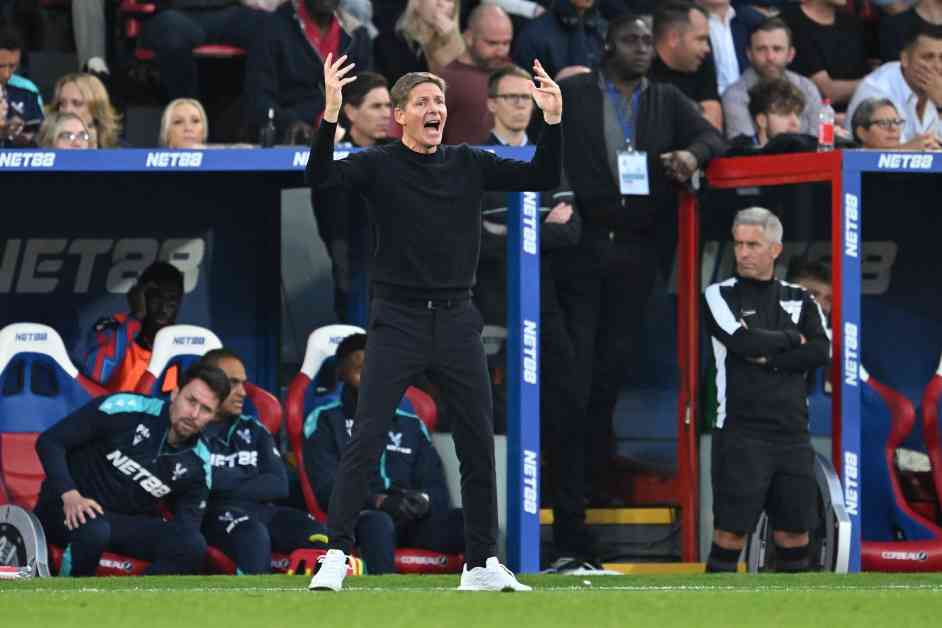Oliver Glasner’s Take on Manchester United Defender’s Tackle
In the recent goalless draw between Crystal Palace and Manchester United, a controversial moment occurred when Lisandro Martinez, the Manchester United defender, made a tackle on Daichi Kamada. Oliver Glasner, the Crystal Palace manager, believed that Martinez should have been shown a red card for his challenge. The incident took place during a crucial stage of the match, with both teams pushing for a breakthrough goal.
Martinez’s challenge on Kamada raised eyebrows among fans and pundits alike. The defender appeared to jump with both feet in the air in an attempt to win the ball. Referee David Coote decided to show Martinez a yellow card for the tackle, which sparked debate about whether a red card would have been more appropriate.
The Premier League’s operational hub, responsible for providing information from Match Centre, the VAR Hub, and PGMOL experts, commented on the incident. They revealed that VAR had checked for a potential red card but ultimately agreed with the referee’s decision to show only a yellow card. The ruling was based on the assessment that Martinez’s challenge was reckless but did not make contact with Kamada.
When asked about his thoughts on the incident, Glasner expressed his belief that Martinez’s tackle was heavy and potentially dangerous. He acknowledged that Martinez may have touched the ball first, preventing a more serious injury to Kamada. Despite his concerns, Glasner refrained from openly criticizing the referee’s decision, acknowledging that mistakes happen in football.
Reactions from the Football Community
The controversial incident involving Martinez’s tackle sparked discussions among football fans and experts. Many believed that the challenge warranted a red card due to its reckless nature and potential for serious injury. Some argued that the referee and VAR should have taken a stricter stance on dangerous tackles to protect players’ safety on the field.
Former players and managers also weighed in on the debate, with varying opinions on whether Martinez should have been sent off. While some felt that the yellow card was sufficient punishment, others called for stricter enforcement of the rules to deter dangerous tackles in the future. The incident served as a reminder of the fine line between aggressive play and reckless fouls in football.
The Impact of Refereeing Decisions on Matches
Refereeing decisions have always been a hot topic in football, with fans and teams often feeling aggrieved by certain calls. The Martinez incident highlighted the influence that referees can have on the outcome of a match. A red card for Martinez could have drastically altered the course of the game, potentially giving Crystal Palace a numerical advantage and changing the dynamic on the field.
Managers like Glasner are often left frustrated by refereeing decisions that they feel go against their team. While they understand that mistakes are part of the game, the impact of a single call can be significant in determining the result. Referees are under immense pressure to make split-second decisions that can affect the outcome of a match, leading to intense scrutiny from all parties involved.
In conclusion, the Martinez incident in the Crystal Palace vs. Manchester United match served as a reminder of the contentious nature of refereeing decisions in football. While opinions may differ on whether a red card was warranted, the incident highlighted the importance of player safety and the role of officials in enforcing the rules of the game. As the debate continues, it is clear that refereeing decisions will always be a topic of discussion in the world of football.

